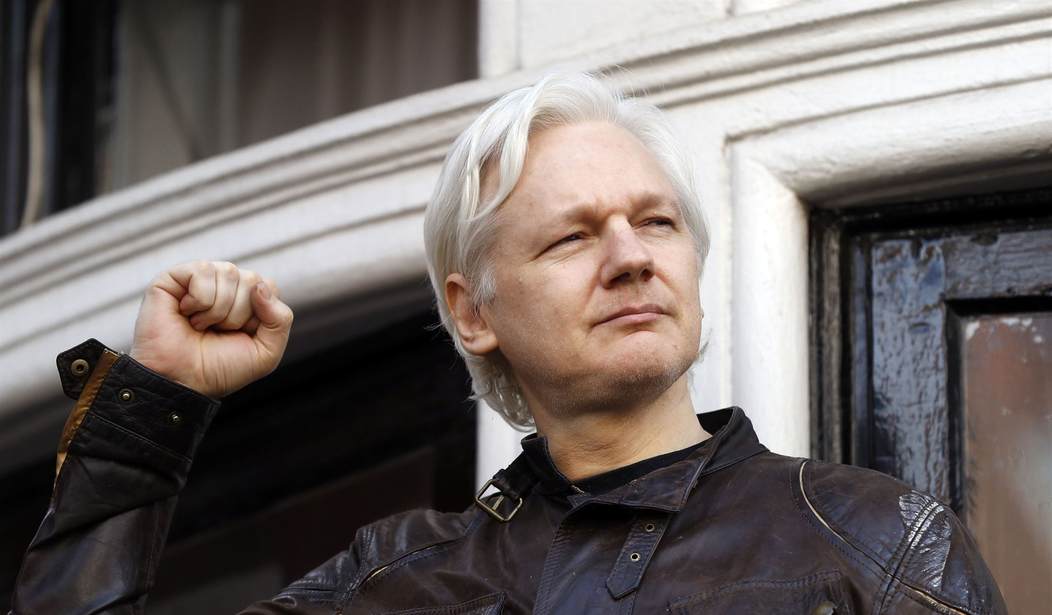Is WikiLeaks founder Julian Assange a hero? A journalist? Or a threat to the United States?
With UK police arresting Assange after the Ecuadorian government ended his asylum status, key government figures and whistleblowers are speaking out about the man, as well as the role of leaking classified information to the public.
“I do not regard him as a hero,” former Homeland Security Secretary Jeh Johnson said Thursday on “Fox & Friends.” Johnson, who served under the Obama administration, said that hacking into any computer without consent is a federal crime, but mentioned that the Internet makes the definition of “legitimate” journalism blurrier than it ever has before.
"He apparently aided and assisted in the leak of classified information," he said. "At some point, there may be a debate whether he was a journalist and that was legitimate journalist activity.”
Fox News reported that London's Metropolitan Police promised to arrest Assange if he ever lost asylum. For six years, the WikiLeaks founder lived inside the Ecuadorian embassy. Originally, “British courts ordered him extradited to Sweden to face questioning in a sexual assault case.” But Assange’s recent arrest concerns the publication of U.S. classified material surrounding the Iraq war.
“Assange is accused of engaging in a conspiracy with [Chelsea] Manning,” Fox News wrote. “The former U.S. Army analyst, in breaking a password stored on a U.S. Defense Department computer connected to a U.S. government computer network for classified documents and communications, the Justice Department said. Manning later transmitted a trove of classified government files to Assange, whose website posted the materials to a worldwide audience.”
WikiLeaks published one of those documents in April 2010. The organization claims that it obtained a U.S. military video, from the perspective of someone in an Apache helicopter, “slaying” people in New Baghdad, including two employees from Reuters.
Recommended
“The military did not reveal how the Reuters staff were killed, and stated that they did not know how the children were injured,” the website wrote. “After demands by Reuters, the incident was investigated and the U.S. military concluded that the actions of the soldiers were in accordance with the law of armed conflict and its own ‘Rules of Engagement.'”
Assange pleaded innocent to charges of him "breaching bail conditions in a Swedish rape case that is no longer under investigation," but was found guilty, according to Huffington Post. Court District Judge Michael Snow noted that Assange’s attitude “was that ‘of a narcissist.'"
JUST IN: Julian Assange found guilty of skipping bail by UK judge. He will be sentenced in Crown Court, where the maximum sentence is 12 months pic.twitter.com/LqQOMqaY97
— Reuters Top News (@Reuters) April 11, 2019
Whistleblower Edward Snowden said Assange’s arrest is “a dark moment for press freedom.”
Images of Ecuador's ambassador inviting the UK's secret police into the embassy to drag a publisher of--like it or not--award-winning journalism out of the building are going to end up in the history books. Assange's critics may cheer, but this is a dark moment for press freedom. https://t.co/ys1AIdh2FP
— Edward Snowden (@Snowden) April 11, 2019
Snowden revealed top secret information from the National Security Agency (NSA) when he served as the Central Intelligence Agency's systems administrator in 2013. The NSA was collecting information about U.S. citizens over the phone and on the Internet, arguably violating people’s Constitutional freedoms. Daniel Ellsberg, who leaked the Pentagon Papers, said, “Edward Snowden has done more for our Constitution in terms of the Fourth and First Amendment than anyone else I know." Meanwhile, Sen. Marco Rubio (R-FL) called Snowden a “traitor” who sparked “conspiracy theories.”
“The weakness of the U.S. charge against Assange is shocking,” Snowden tweeted. “The allegation he tried (and failed?) to help crack a password during their world-famous reporting has been public for nearly a decade: it is the count Obama's DOJ refused to charge, saying it endangered journalism."
Editor's Note: The article originally read that Assange pleaded innocence but was found guilty in a sexual assault case in Sweden. It has been corrected to say that he was found guilty of skipping bail. The case itself is no longer under investigation.

























Join the conversation as a VIP Member